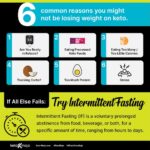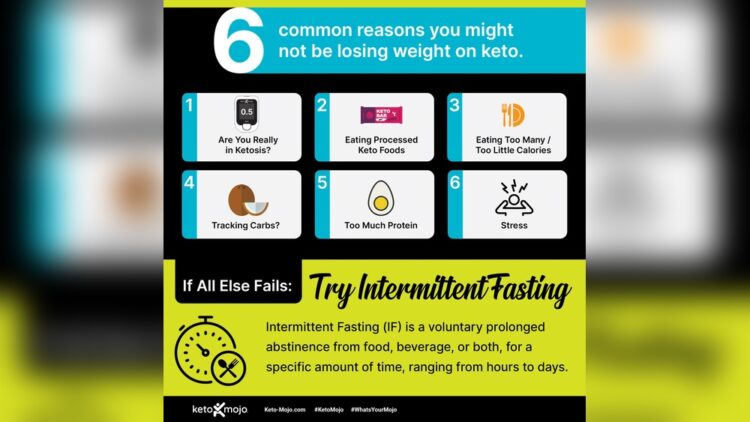If you are looking for a way to lose weight fast, you may have heard of HCG injections. HCG stands for human chorionic gonadotropin, a hormone that is produced by pregnant women. Some people claim that HCG injections can help you burn fat, suppress your appetite, and boost your metabolism. But is there any truth behind these claims, or are they just hype? In this article, we will explore the facts and myths about HCG injections for weight loss.
Key Information About HCG Injections for Weight Loss
| Key Information | Details |
|---|---|
| What is HCG? | Human chorionic gonadotropin, a hormone produced by the placenta during pregnancy. |
| What are HCG injections? | Shots of synthetic or natural HCG that are given under the skin or into the muscle. |
| What is the HCG diet? | A very low-calorie diet (500 to 800 calories per day) that is combined with HCG injections. |
| How does the HCG diet work? | The theory is that HCG injections can trigger the body to use stored fat as energy, while the low-calorie diet prevents weight gain. |
| Is the HCG diet safe and effective? | There is no scientific evidence that HCG injections can help with weight loss or have any beneficial effects on health. The HCG diet can be dangerous and cause serious side effects. |
How did the HCG diet start?
The HCG diet was first proposed by a British doctor named Albert Simeons in the 1950s. He claimed that he had discovered a link between obesity and a deficiency of HCG in the body. He suggested that injecting small doses of HCG could correct this deficiency and help people lose weight. He also prescribed a very low-calorie diet (500 calories per day) to his patients, claiming that this would enhance the effects of HCG.
Simeons published his findings in a book called “Pounds and Inches: A New Approach to Obesity”. The book became popular and sparked a lot of interest in the HCG diet. Many people tried the diet and reported positive results. However, Simeons’ claims were not based on any rigorous scientific research or evidence. He did not conduct any controlled trials or follow-ups with his patients. He also did not explain how HCG could affect weight loss or metabolism.
What are the benefits of HCG injections?
According to some proponents of the HCG diet, HCG injections can offer several benefits for weight loss, such as:
- Reducing hunger and cravings
- Increasing energy and mood
- Preserving muscle mass and preventing sagging skin
- Targeting stubborn fat areas, such as the abdomen, hips, and thighs
- Enhancing the immune system and hormonal balance
- Improving fertility and sexual function
However, these claims are not supported by any scientific evidence. There is no proof that HCG injections can affect appetite, energy, mood, muscle, fat distribution, immunity, hormones, or reproduction in any way. In fact, most of the benefits attributed to HCG injections are likely due to the placebo effect or the very low-calorie diet.
What are the risks of HCG injections?

HCG injections are not approved by the Food and Drug Administration (FDA) for weight loss purposes. They are only approved for treating certain medical conditions, such as infertility or hormonal disorders. Therefore, using HCG injections for weight loss is considered off-label and illegal.
HCG injections can also be dangerous and cause serious side effects, such as:
- Blood clots
- Infections
- Allergic reactions
- Headaches
- Nausea
- Fatigue
- Mood swings
- Depression
- Breast enlargement or tenderness in men
- Ovarian hyperstimulation syndrome in women
Moreover, the very low-calorie diet that accompanies the HCG injections can also pose health risks, such as:
- Malnutrition
- Gallstones
- Electrolyte imbalance
- Heart problems
- Kidney problems
- Liver problems
- Hair loss
- Bone loss
What are the alternatives to HCG injections?
If you want to lose weight safely and effectively, you should avoid using HCG injections or following the HCG diet. Instead, you should adopt a healthy lifestyle that includes:
- Eating a balanced diet that provides enough calories and nutrients for your body’s needs.
- Choosing foods that are high in protein, fiber, vitamins, minerals, and antioxidants.
- Avoid foods that are high in sugar, fat, salt, and processed ingredients.
- Drinking plenty of water and limiting alcohol and caffeine intake.
- Exercising regularly and doing a mix of cardio and strength training.
- Sleeping well and managing stress levels.
- Setting realistic and achievable goals and tracking your progress.
- Seeking professional advice from a doctor or a nutritionist if you have any medical conditions or special dietary needs.
Here is a video that explains more about the HCG diet:
How can you spot a fake or scam HCG product?
Since HCG injections are not approved for weight loss, they are not regulated by the FDA or any other authority. This means that there are many fake or scam HCG products on the market that can be harmful or ineffective. Some of these products may contain no HCG at all, or contain other substances that can cause adverse reactions.
To avoid falling for a fake or scam HCG product, you should:
- Do your research and check the credibility and reputation of the seller or manufacturer.
- Read the label and ingredients carefully and look for any red flags, such as vague or exaggerated claims, lack of dosage information, or unknown or unsafe ingredients.
- Avoid buying HCG products online or from unlicensed sources, such as websites, social media, or personal contacts.
- Consult your doctor before using any HCG product and follow their instructions and recommendations.
How can you get help if you have used HCG injections?
If you have used HCG injections for weight loss or are considering using them, you should seek medical help as soon as possible. You may be putting your health and life at risk by using an unapproved and potentially dangerous product. You may also have an underlying condition or disorder that needs to be diagnosed and treated.
Your doctor can help you by:
- Performing a physical examination and running some tests to check your health status and identify any complications or side effects caused by HCG injections.
- Prescribing medications or treatments to address any symptoms or problems caused by HCG injections.
- Advising you on how to stop using HCG injections safely and gradually.
- Referring you to a specialist or a counselor if you have any psychological or emotional issues related to your weight or body image.
- Providing you with guidance and support on how to lose weight in a healthy and sustainable way.
How can you prevent weight gain after stopping HCG injections?
One of the biggest challenges of using HCG injections for weight loss is maintaining the weight loss after stopping the injections. Many people who use HCG injections experience rapid weight loss in the short term, but they also regain the weight quickly once they stop the injections. This is because:
The weight loss achieved by HCG injections is mostly due to water and muscle loss, not fat loss. Once you stop the injections, your body will try to restore its normal fluid and muscle balance, which will result in weight gain.
The very low-calorie diet that accompanies the HCG injections is not sustainable or healthy. Once you stop the diet, your body will try to compensate for the calorie deficit by increasing your appetite and metabolism, which will also result in weight gain.
The HCG injections may have disrupted your natural hormone levels and metabolism, which can affect your weight regulation and energy balance. It may take some time for your body to adjust and return to its normal state after stopping the injections.
To prevent weight gain after stopping HCG injections, you should:
Stop using HCG injections gradually and under medical supervision. Do not stop abruptly or without consulting your doctor.
Increase your calorie intake slowly and moderately. Do not binge eat or overeat after stopping the diet. Follow a balanced and nutritious diet that meets your body’s needs.
Exercise regularly and moderately. Do not overexert yourself or do too much exercise after stopping the diet. Build up your strength and endurance gradually and do a mix of cardio and strength training.
Monitor your weight and body measurements regularly. Do not obsess over the scale or compare yourself to others. Focus on your health and well-being, not just your appearance.
Seek professional help if you have any difficulties or concerns about your weight or body image. Do not hesitate to reach out to your doctor, a nutritionist, a therapist, or a support group if you need advice or assistance.
What are some success stories of people who have used HCG injections?
Despite the lack of evidence and safety of HCG injections for weight loss, some people still use them and claim to have achieved positive results. These people may have different reasons, motivations, experiences, and outcomes of using HCG injections. However, their success stories should not be taken as proof or endorsement of the effectiveness or safety of HCG injections. They should also be viewed with caution and skepticism, as they may be biased, exaggerated, incomplete, or fabricated.
Here are some examples of success stories of people who have used HCG injections:
Jennifer:
Jennifer is a 35-year-old mother of two who used HCG injections for six weeks and lost 25 pounds. She said that she had tried many diets before but none of them worked for her. She said that she was skeptical about HCG injections at first but decided to give them a try after reading some positive reviews online. She said that she followed the low-calorie diet strictly and took the HCG injections every day. She said that she did not feel hungry or tired and that she noticed a difference in her body shape and size. She said that she was happy with her results and that she would recommend HCG injections to anyone who wants to lose weight fast.
Mark:
Mark is a 40-year-old businessman who used HCG injections for eight weeks and lost 40 pounds. He said that he had struggled with his weight for a long time and that he had tried many weight loss programs but none of them worked for him. He said that he heard about HCG injections from a friend who had used them and had lost a lot of weight. He said that he decided to try them out of curiosity and desperation. He said that he followed the low-calorie diet and took the HCG injections as instructed. He said that he felt some side effects, such as headaches, nausea, and mood swings, but they were manageable. He said that he was amazed by how much weight he lost and how much better he felt. He said that he was satisfied with his results and that he would continue to use HCG injections until he reached his goal weight.
Lisa:
Lisa is a 30-year-old teacher who used HCG injections for four weeks and lost 15 pounds. She said that she had always been overweight and that she had low self-esteem and confidence. She said that she wanted to lose weight for her wedding and that she had tried many diets but none of them worked for her. She said that she found out about HCG injections online and that she was intrigued by the testimonials and reviews. She said that she ordered the HCG injections from a website and started the diet. She said that she followed the diet plan and took the injections every day. She said that she did not experience any side effects or hunger. She said that she was surprised by how fast she lost weight and how much better she looked. She said that she was happy with her results and that she felt more confident and beautiful on her wedding day.
What are some criticisms of the HCG diet?
The HCG diet has been widely criticized by many experts, authorities, and organizations for being ineffective, unsafe, and unethical. Some of the criticisms of the HCG diet are:
- It has no scientific basis or evidence. The claims and mechanisms of the HCG diet are pseudoscientific and have no support from any reliable research or data.
- It can harm your health and well-being. The HCG diet is a starvation diet that can deprive your body of essential nutrients and energy. This can result in malnutrition, gallstones, electrolyte imbalance, heart problems, kidney problems, liver problems, hair loss, bone loss, and more.
- It can affect your mood, mental health, and self-image. The HCG diet can trigger depression, anxiety, eating disorders, body dysmorphia, and other issues.
- It is risky and costly. The HCG diet involves buying and using unapproved and unregulated products that can be harmful or ineffective. It also requires injecting hormones into your body without medical supervision and following a strict and unrealistic regimen.
- It is misleading and deceptive. The HCG diet uses false or exaggerated claims, testimonials, reviews, or before-and-after photos to attract customers and make profits. It does not provide any accurate or honest information about the risks and benefits of the diet.
- It is unethical and irresponsible. The HCG diet exploits the desperation and vulnerability of people who want to lose weight. It promotes unhealthy and unsustainable weight loss methods that can harm the health and well-being of the dieters. It also violates the principles of medical practice and public health.
In Conclusion
HCG injections for weight loss are not a miracle solution or a quick fix. They are a dangerous and ineffective method that can harm your health and well-being. There is no evidence that HCG injections can help you lose weight or have any beneficial effects on your body or metabolism. On the contrary, there is plenty of evidence that HCG injections can cause serious side effects and complications. The very low-calorie diet that accompanies the HCG injections is also unsafe and unhealthy. It can deprive your body of essential nutrients and energy, damage your organs and systems, and impair your physical and mental health.
If you want to lose weight safely and effectively, you should avoid using HCG injections or following the HCG diet. Instead, you should follow a healthy lifestyle that includes eating a balanced diet, exercising regularly, sleeping well, managing stress, setting realistic goals, tracking your progress, seeking professional advice, and getting help if you need it.
Disclaimer: This article is for informational purposes only and does not constitute medical advice or endorsement of any product or service. You should always consult your doctor before using any weight loss product or service or making any changes to your health or diet.










Leave a Reply